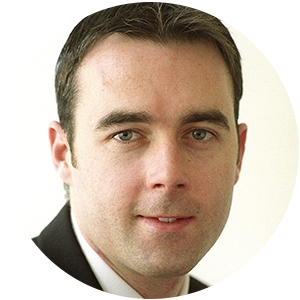Mercer Global Investments'Michael Dempseyspeaks withGlobal Financeabout the growth of multimanager asset management.

Global Finance: What has changed that pushes pension sponsors to the multimanager approach?
Michael Dempsey: If you’re a pension scheme, it’s not just about performance but about how you can enhance your governance, reduce cost and improve your speed of implementation after you make decisions—all of which are to generate a better outcome, including better underlying manager performance. That’s one of the key changes in Europe that we have seen, where clients are no longer looking to choose from a range of managers.
Over the last 10 or 15 years, investment programs for pension schemes in particular have become more complex. They’re becoming much more risk focused; and there’s been a lot of new regulation, whether it’s accounting regulation for sponsors or local pension regulations affecting pension schemes and trustee boards. So rather than deal with one or two managers or one or two asset classes, they’re now dealing with multiple managers and multiple asset classes. How can they get the right level of governance to support managing their investment program to a greater level while not jeopardizing their performance? That has enabled the solutions market to grow, and quite substantially.
GF: “Governance” is key here. Can you break that down?
Dempsey: If you take a pension scheme, there’s usually a qualified trustee board making decisions, but they are also looking at the liabilities and at all the legal and administrative issues that go hand in hand with that. All of these areas have become more complex over time. They began to develop more specialists and tailored investment programs, and that led to more asset classes and more managers—and higher costs. How do you contract with so many managers—which can be a very slow, paperwork-heavy process? If you delegate that to a solutions partner like Mercer, then you’re reducing that significantly; and it also enables us to use our buying power.
We work with them on each of the three key elements: design, at a strategy level; implementation, at a manager level; ensuring that cost is efficient; and then ensuring that all three of those elements are adding up to achieve a better outcome. And that outcome is in terms of your time efficiency, your decision-making process, your performance and your costs.
GF: How do you apply the multimanager concept to specific investment strategies?
Dempsey: We are in the process of launching a sustainable global equity fund, and that involves really finding managers that are high in terms of environmental, social and governance themes. That will be launched in Q3 of this year. Another example is listed infrastructure: At the moment, we have both a private infrastructure fund and a public or liquid infrastructure fund. We’re seeing demand increasing across Europe for these.
Where you see the biggest and most favorable impact in terms of diversification is investing in illiquid assets, and in particular private markets, where you see less correlation with public equity. There’s also an illiquidity premium from locking your money away for five to 10 years. So investing that in the right way over multiple years is also important, as is diversification even within your private markets portfolio. That, again, is something that many of our clients are focused on, and we’re committed to supporting them.



